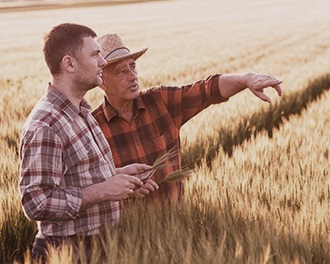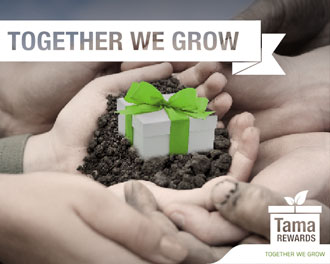How to connect more consumers with the value of Australian Agriculture
2020
In conversation with Scott Niewand from Wits End Pulses Australia produces food to some of the highest standards in the… Read more
In conversation with Scott Niewand from Wits End Pulses
Australia produces food to some of the highest standards in the world. As a result, our farmers are admired and our produce enjoys a ‘clean and green’ reputation internationally. Aussie farmers export 60 percent of what they grow and manage to supply 93 percent of our country’s food. That’s an impressive job. Yet many people in Australia don’t understand the importance of our agricultural sector and why it’s worth supporting. So, how can we better connect with consumers and spell out the benefits of buying local? According to Scott Niewand — founder of Wits End Pulses — communication and education is the answer.
Scott started Wits End Pulses in 2015. Since then he has gone on to win two Australian Food Awards, build an engaged social media community, and attract a bevy of happy customers. We caught up with him to get his advice on how we can bring more folk into the fold when it comes to appreciating Aussie farmers.
Before we sink our teeth into this topic, could you tell us a bit about yourself.
Scott: I’m a sixth-generation farmer who grew up on my family’s cereal and pulse farm in Rupanyup before moving to Melbourne to study commerce.
After five years working in marketing for an agricultural commodities company I decided to move home to start my own venture. Wits End started off as a tiny business that involved me taking my pulses to Melbourne and cooking them up in lovely dishes for my mates. I then started doing farmers markets, and it grew from their when I realised there was an opportunity to supply restaurants, select retailers, and sell direct to consumers.
Why do you think consumers should support Australian farmers?
Scott: Buying local produce means you’re buying food that’s been grown to higher standards by people who are being paid and treated fairly for their farm work.
Unfortunately, many imported products don’t offer these guarantees. And while imports maybe cheaper for consumers, someone else along the supply chain usually pays the price for this saving. Then there’s the quality of produce itself, which in the case of Wits End, is exceptionally high. Unlike other dried pulses, all of ours are single origin pulses that come from the same grower, the same paddock, and the latest season.
We oversee every step from pod to plate, and this means you’re getting the freshest and finest pulses on the market.
So why aren’t more Aussies buying our produce?
Scott: I think there are many people who want to do the right thing but they’re on a tight budget.
The rising cost of living is making it hard on many families to justify the often-higher price of Australian produce. However, I think we should keep emphasising the fact that we adhere to higher standards that makes our food safer and fairer for those who grow it.
Research has shown that one in five Aussie kids don’t know where fresh food comes from. Should we be worried about this?
Scott: It is a little concerning, especially if want more people to value the work we do. I think everyone should learn at school about Australian agriculture — what we grow, where we grow it, how it’s grown, and the seasons when it’s available. I think teaching this basic information is important in helping build knowledge, pride, and respect for agriculture at an early age.
Hopefully, doing this will make them realize food doesn’t come from a supermarket shelf and they’ll value the premium nature of Aussie produce.
Do you think urbanization is responsible for the disconnect between farmers and consumers?
Scott: I think it’s only natural that people lose touch with farming and farmers when they live in cities.
Years ago, people were much closer to the source of their food. They’d visit the butcher, grocer, and baker and see the meat being chopped, the dirt on their veggies, and the flour being milled.
Today, it’s all nicely packaged on the supermarket shelf and I think this conceals the people and place behind it — and this can create apathy among consumers.
To be fair to people who have grown up in the city, if they’ve have no contact with agriculture it can be difficult for them to understand why farming is important to them. It’s this disconnect that makes convincing them about the benefits of paying more for Aussie produce difficult. So, it’s crucial we start talking to people without an agricultural or rural background in a way that makes sense to them.
So how can we better engage consumers and educate them about the value of Australian agriculture?
Scott: Well, farmer’s markets and social media are working for us. Farmer’s markets are awesome places for farmers and consumers to learn from each other and bond over something they both love — good food. I’ll be honest, it sometimes feels like we’re preaching to the converted because many people who attend them already value local produce but it’s still a valuable forum.
Recent changes to food labeling laws that clarify what’s been grow in Australia and what hasn’t also play a big role in helping consumers to make an informed choices and support Aussie farmers.
For us, social media has been a great way to connect with people. We regularly post updates and photos online to help give people a taste of what working life is like and how much love goes into growing their food.
I think it’s a powerful way for farmers to reach a lot of people and talk directly to consumers about what sets them apart.
Do you think technology replaces the value of real time farm visits?
Scott: I think we’ve got to strike the right balance because technology can contribute to the disconnect between consumers and farmers. When you’re bombarded with stuff on social media then it’s easy to scroll through, think about something for a second, and then move on.
However, when you visit a farm there’s a totally different learning process going on, and when you speak to a farmer face-to-face it’s hard not to care.
We don’t currently offer farm visits because we’re not set up to do it well — but that might change in the future. Other farms do offer tours, and initiatives such as ‘Visit My Farm’ — an online platform that allows people to book visits on participating farms — are a great place to start for farmers who want to open their gates and people who want to experience farm life first-hand.





